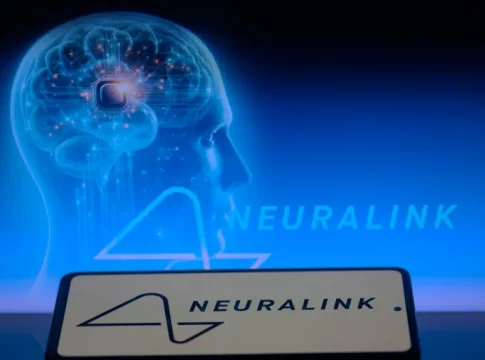In an era where technological advancements and medical innovations often intersect, Neuralink, a company founded by Elon Musk, has achieved a groundbreaking milestone. Recently, Neuralink secured FDA approval for its blindsight implant, a pioneering device aimed at restoring vision to individuals with severe visual impairments. This approval marks a significant leap forward, not just for the company, but for the millions of people who stand to benefit from this revolutionary technology.
Neuralink’s blindsight implant is a sophisticated neural interface device designed to bridge the gap between digital technology and the human brain. By bypassing damaged visual pathways, this implant directly stimulates the visual cortex to create a perception of sight. The core technology involves a series of ultra-thin electrodes that are implanted into the brain, capable of both recording neuronal activity and delivering electrical impulses.
Securing FDA approval is no small feat. The stringent evaluation process ensures that only devices that meet high standards of safety and effectiveness reach the market. For Neuralink, this approval is a testament to the rigorous testing and promising results demonstrated in clinical trials.
During these trials, participants with severe visual impairments showed remarkable improvements in their ability to perceive light, shapes, and even movement. The FDA’s endorsement not only validates the potential of the blindsight implant but also paves the way for broader clinical applications and accessibility.
Benefits of the Blindsight Implant
1. Restoring Independence: For individuals who have lost their vision due to conditions such as retinitis pigmentosa, glaucoma, or traumatic injuries, the blindsight implant offers a significant enhancement in quality of life. Being able to perceive the environment can restore a level of independence that many visually impaired individuals strive for. Simple tasks like navigating through a room, recognizing faces, or reading signs become attainable once more.
2. Enhancing Quality of Life: The psychological and emotional toll of vision loss cannot be overstated. Depression, anxiety, and a sense of isolation often accompany visual impairments. By restoring partial or full vision, the blindsight implant can alleviate these mental health challenges, fostering a greater sense of well-being and social inclusion.
3. Stimulating Scientific and Medical Advancements: The development and implementation of Neuralink’s blindsight implant also spur progress in neuroscience and biomedical engineering. Insights gained from the functioning of this implant can inform future research on brain-machine interfaces, neuroplasticity, and the treatment of other neurological disorders.
4. Economic and Social Impact: Vision loss carries substantial economic costs due to lost productivity, healthcare expenses, and the need for assistive services. By potentially reducing the prevalence of severe visual impairments, the blindsight implant can mitigate these economic burdens. Additionally, individuals who regain their vision can contribute more effectively to the workforce, enhancing economic productivity and social dynamics.
5. Pioneering Human Augmentation: Neuralink’s success highlights the burgeoning field of human augmentation—enhancing and restoring human capabilities through technology. This paradigm shift opens doors to future innovations in augmenting other sensory and motor functions, revolutionizing how we understand and interact with our bodies.
As Neuralink moves forward with its blindsight implant, the focus will likely shift towards optimizing the technology, making it more accessible, and expanding its applications. Collaborations with medical institutions, ongoing research, and continuous feedback from users will be crucial in refining the device.
Moreover, the FDA approval sets a precedent for the regulatory pathway of similar neural interface devices. This could accelerate the approval process for future innovations, fostering a more vibrant ecosystem for neuro technological advancements.
Neuralink’s FDA-approved blindsight implant represents a monumental stride in merging technology with human physiology. By offering a promising solution to restore vision, it not only transforms the lives of individuals with visual impairments but also propels the scientific community towards uncharted territories in neurological research and human augmentation. As we stand on the brink of this new frontier, the potential for further breakthroughs and the profound impact on society are both exhilarating and boundless.


